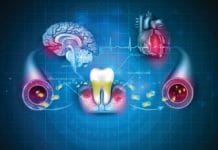Established research demonstrates a connection between the mind and the body. Within medicine, the mind and the body connection is not fully accepted by all, but much of its evidence is respected and considered in many aspects.
The contributions of many intellectual and innovative researchers have proved evidence of the connection between the two. The mind and the body connection focuses on the involvement of the brain, which further consists of the nervous system, the endocrine system, and the immune system. Countless studies have made efforts to evaluate the impact of stress, the evaluation of personality traits, and the risks associated.
This research of the mind and the body connection is scientifically known as psychoneuroimmunology.
“Psychoneuroimmunology (PNI) is a discipline that has evolved in the last 40 years to study the relationship between immunity, the endocrine system, and the central and peripheral nervous systems. In this manner, neurotransmitters, hormones, and neuropeptides have been found to regulate immune cells, and these, in turn, are capable of communicating with nervous tissue through the secretion of a wide variety of cytokines.” (Tausk, 2008)
According to recent research, there is supporting evidence for the discipline of psychoneuroimmunology. This particular study of medicine may be worth knowing in order to better understand our patients, perhaps establishing improved outcomes for our patients. Dental hygienists, in particular, have the benefit of truly getting to know our patients. Patients share everything with us (sometimes too much!). In this advantageous setting of having adequate time and multiple visits with our patients, it allows an enhanced understanding of their personalities.
For example, being aware that a patient with clinical anxiety is more at risk for physical ailments and illnesses. Those affected patients are more likely to have complicated health conditions, which ultimately can contribute to poor oral health. “Who gets sick the most? A study of all patients coming in for physical illness at two general-medicine clinics at the University of Utah revealed that 47 percent had identifiable anxiety (42 percent also had significant depression, and more than half of all patients coming in had some kind of anxiety or depression disorder)” (Karren, 2014). If patients reveal to their hygienist that they are experiencing anxiety, depression, or related mental conditions, then encouraging patients to see their medical doctor to address such conditions will optimistically improve their overall health.
The Example of Stress
In today’s medicine, many medical communities have accepted the notion that physical problems may have emotional roots. There is increasing evidence that countless illnesses and diseases can be linked to emotion, feelings, or even a certain personality trait. The key understanding to keep in mind with the study of psychoneuroimmunology is that it established a link and is not contributed as the sole cause of a certain disease. There are several complex, controversial, and evolving aspects of such an integrative approach to medicine, but some aspects of it are easily understood.
The impact of stress on health is one aspect that has much respect within the modern world of medicine. We have probably experienced this one ourselves − the dreaded feeling of high stress that is followed by a high fever. We can contribute this mind and body connection to that of a weakened immune system.
With the study of psychoneuroimmunology, it proves evidence that goes deeper than some people have a “stronger” immune system than others.
“Physicians often note that chronically stressed or depressed patients complain of ‘getting everything that’s going around’ or of having trouble getting rid of respiratory or intestinal infections. An interesting British study documented this effect. Researchers created a ‘stress index’ for a group of people based on the presence or absence of depression symptoms or overwhelming stress. These people were then exposed to a tiny amount of cold viruses in nose drops to see who would actually get a viral infection. Sure enough, those with the high-stress index got the colds at a much higher rate.” (Karren, 2014)
The impact of stress on the body is profound and often leaves a person more susceptible to other health compromises. With the enhanced understanding of stress and its systemic effects, it seems beneficial to consider this when treating our patients. We often see highly stressed patients continuously canceling their prophy appointments due to illness. It is important as healthcare providers that we provide feedback to our patients on how their stresses can impact their overall health, with science to prove it.
Personality Traits
The study of psychoneuroimmunology has made efforts to link certain personality traits to that of certain conditions. There is established research that certain personality types exist, such as the “Type A personality.” Psychoneuroimmunology evaluates the ways in which a Type A personality may be more at risk for cardiovascular disease or other chronic conditions.
An evaluation of a certain personality and the contributed traits such as anger, cynicism, and impatience may contribute as a risk factor to a certain disease. This approach has not yet been fully accepted by modern medicine due to the risk of victim-blaming. It is not deemed reasonable to inform a patient that their high-strung personality may have contributed to their coronary heart disease.
The study of psychoneuroimmunology, although complex, is highly interesting and noteworthy to the dental hygienist. We have the advantage of truly getting to know our patients and can apply our rapport with patients to better understand their health. In my efforts to better understand the mind and the body connection, I’ve allowed for improved instruction for not only my patients but can contribute its approaches to my own life.
Before you leave, check out the Today’s RDH self-study CE courses. All courses are peer-reviewed and non-sponsored to focus solely on pure education. Click here now.
Listen to the Today’s RDH Dental Hygiene Podcast Below:
References
- Tausk, F. Psychoneuroimmunology. Dermatologic Therapy. 2008: 21(1): 22–31. doi: 10.1111/dth.2008.21.issue-s3
- Karren, K.J. (2014). Mind/body health: the effects of attitudes, emotions, and relationships. Boston: Pearson.












